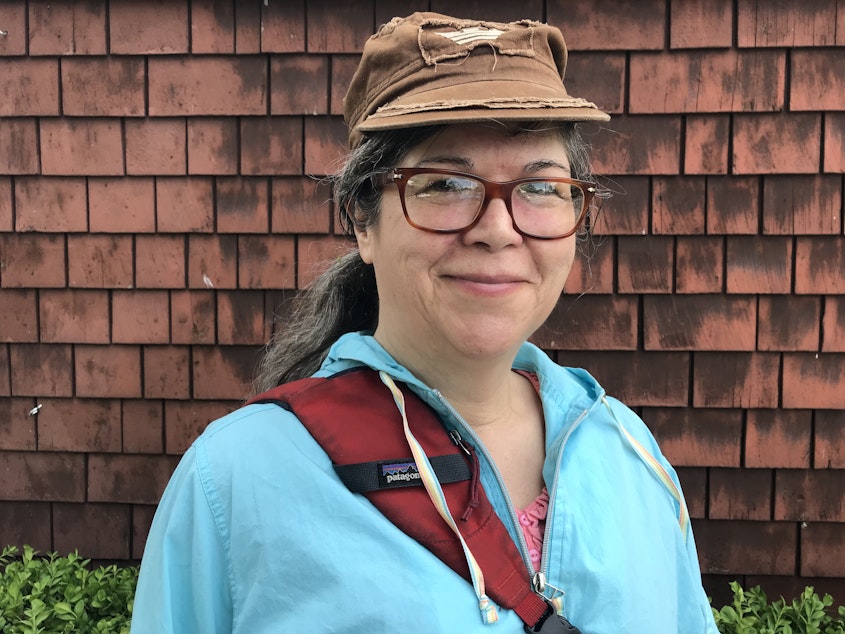Homeless people also want to know where Seattle's money is going

With Seattle adding tens of millions of dollars to fight homelessness, people around the city want to know: Is that money being spent effectively?
Valerie Nagle is one of them. She lives in her van.
During a recent conversation at Ballard Commons, Nagel said she sees a single path to solving the problem. And she wonders why more money isn't going there.
“Why is there so much money [spent in] ineffective ways instead of [on] truly affordable housing for people to move into – permanent housing?” she asked.
I put her questions to Kira Zylstra, interim director of ALL HOME King County, which coordinates a regional response to homelessness. She said measuring outcomes is key — but also complicated.
Sponsored
"As funders, as government entities we need to hold ourselves accountable to the investments that we're making and answer the tough questions about how are we doing,” she said. “There's always improvements that need to be made."
Read: Seattle just voted for a shrunken ‘head tax’
Zylstra said there has been a flaw with how performance by service providers was measured.
"How many people are you serving? How many workshops are you putting on? How many classes have you offered? How many times did you offer an individual service?" she said. “What that doesn't tell us is: What was the result?"
In Seattle, a new system was introduced last year to measure results.
Sponsored
"So, are we able to connect someone to housing, if that is the ultimate goal?" Zylstra said. "Are we able to connect someone with employment, if that is the ultimate goal?"
Jason Johnson is in charge of implementing that new system for Seattle as acting head of the city's Department of Human Services.
"We want providers to understand that we're going to be investing in programs that are working,” Johnson said.
Here's how it works.
When groups applied for funding in 2017 under the new system, the city had a new set of questions. For instance, how many people were actually moved from shelters to permanent housing? And did that permanent housing stick?
Sponsored
If service providers didn't have the right programs, the city didn’t give them money.
But is the new approach working?
Johnson said the numbers he's seen for the first quarter of this year are promising.
“Our exits to permanent housing are hundreds more than they were compared to first quarter 2017,” he said. “So we're really seeing the enhancements that we made in shelter starting to take effect.”
But the city won't let KUOW see the data it's looking at — not yet, anyway. That might come next month.
Sponsored
And there's another big question: Will the city follow through this year and cut funding to groups that don't make the grade? KUOW is trying to get the answer to that question as soon as possible.
Lisa Herbold, who serves on the Seattle City Council, said people should get the message that the city's goals are clear.
"There's this idea out there that we've been just writing blank checks and not requiring any reporting on outcomes," she said. "That's not the case."
But she admits that even with all the money that's being spent, homelessness continues to grow.
"People don't realize that more people are becoming homeless, even as we are moving other people out of homelessness," she said.
Sponsored
Herbold supported the new head tax on big companies like Amazon. It's expected to bring in about $50 million per year. That's in addition to the $80 million the city is already spending this year on the crisis.
Back in Ballard, Valerie Nagle said she’s grateful for services she gets now from the Urban Rest Stop: "A shower and laundry — and it's clean and they're welcoming."
She also appreciates the free breakfast from Edible Hope Kitchen, a ministry of St Luke's Episcopal Church.
But Nagle's tired of living in her van. And like everyone I spoke with near the Ballard Commons, what she wants is a real home.
"Huge, it would be huge, if there was enough housing — affordable housing,” Nagle said. “Even working people are being forced out to their vehicles."

